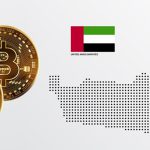The idea of oil companies committing to low-carbon investment may sound like a paradox or contradiction to some, but for Abu Dhabi National Oil Company (Adnoc) and other Gulf energy providers, it is a necessary step towards future-proofing their businesses while meeting global energy demand. On Thursday, Adnoc committed to investing Dh55 billion ($15 billion) towards low-carbon efforts to 2030, which covers four main areas – energy efficiency, electrifying operations, expanding carbon capture and storage (CCS), and investing in renewables and green hydrogen. These commitments follow Adnoc’s acquisition of Austria’s OMV and Borealis in December and April, respectively.
Adnoc’s plan to reduce methane escape and gas flaring, electrify operations with clean power, expand CCS, and invest in renewables stand in contrast to other national and private oil companies, who face increasing pressure to reduce emissions and decarbonize in all areas of their business. However, Adnoc’s commitment to low-carbon technologies is a necessary step towards future-proofing its business, especially with the UAE’s net-zero target by 2050 and 80% of the world economy aiming for net-zero by 2050-70.
For Adnoc, as well as Saudi Aramco and QatarEnergy, their mission is clear: meet global energy demand with a mixed geological resource and new non-carbon technologies. While national oil companies enjoy many remaining decades of oil and gas reserves, they must also maintain a low-carbon footprint for future longevity and provide net-zero solutions to customers in oil, gas, and non-carbon products. Adnoc’s near-term commitments are vital ahead of the Cop28 UN climate conference in November, where the UAE will host the event.
Adnoc’s commitment to investing in low-carbon technologies is a necessary and important step towards future-proofing its business and meeting global energy demand. While other national and private oil companies face increasing pressure to decarbonize across their entire business, Adnoc’s focus on reducing methane escape and gas flaring, electrifying operations with clean power, expanding CCS, and investing in renewables and green hydrogen, stands as a positive example in the Gulf energy sector. As countries and companies representing 80% of the global economy aim for net-zero by 2050-70, Adnoc’s $15 billion commitment to low-carbon efforts is one more step on a long and necessary road.

عبدالرحمان زمین پیما
Author

آرمان جعفری
Author













